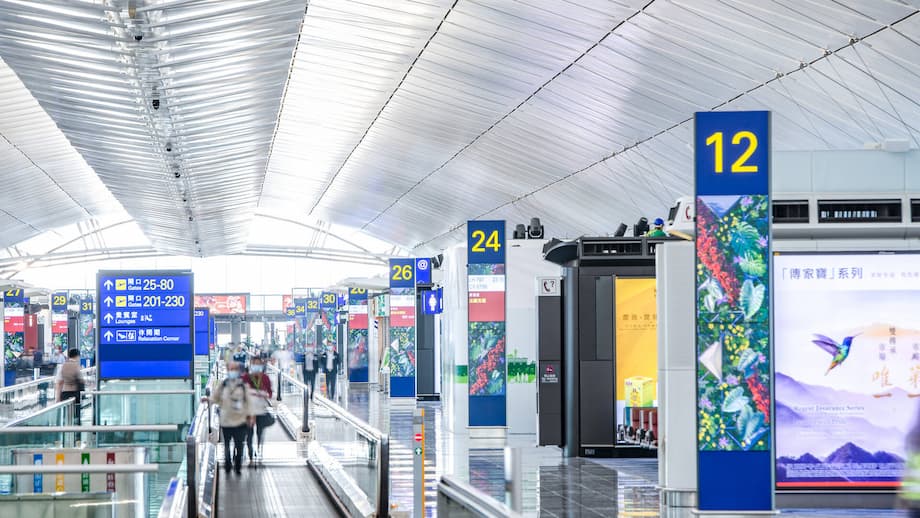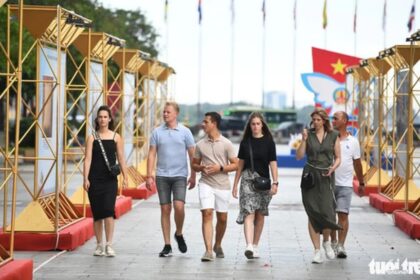What is changing and why it matters
Hong Kong will raise its Air Passenger Departure Tax to HK$200 per departing passenger from October 1, 2025, a 67 percent increase from the current HK$120. It is the first adjustment in 22 years. Lawmakers approved the Air Passenger Departure Tax (Amendment) Bill 2025 in May, with 77 votes in favor, 2 against, and 5 abstentions. The government estimates the higher rate will add about HK$1.6 billion in revenue each year, supporting a wider budget plan to fix a large fiscal shortfall.
- What is changing and why it matters
- When the new rate takes effect
- Who pays the tax and who is exempt
- How to claim a refund under the expanded exemptions
- Will this make Hong Kong less competitive
- How Hong Kong compares with other markets
- What it means for your ticket, including award travel
- Reactions from lawmakers and the industry
- The Greater Bay Area angle
- Where the revenue fits in the budget picture
- Practical steps for travelers
- Key Points
The levy applies to passengers aged 12 and older who depart by air. It is embedded in the price of a ticket and collected by airlines on the government’s behalf, so most travelers will not make a separate payment at the airport. Officials argue that the HK$80 increase per passenger is affordable and will have a limited effect on travel demand. Some lawmakers and industry voices worry that any rise in trip costs will make Hong Kong less competitive against nearby hubs that are battling to attract the same travelers.
The decision lands at a sensitive moment for the city’s recovery. Passenger numbers and flight movements have climbed from the pandemic low point, but they remain below 2019 levels. The administration is also grappling with a deficit of roughly HK$87.2 billion for the 2024 to 2025 financial year and is looking to steady its finances without introducing new broad taxes.
Financial Secretary Paul Chan presented the increase as part of a shift back to a user pays approach after years without fee adjustments.
We will uphold the user pays and affordable users pay principles while increasing revenue amid a deficit.
When the new rate takes effect
The higher Airport Passenger Departure Tax will apply to tickets issued on or after October 1, 2025. Airlines add the tax to the total fare at the time of ticketing, so travelers who buy tickets before October 1 will remain on the current HK$120 rate even if they fly later.
The change is per departure, not per round trip. A traveler flying Hong Kong to Tokyo and back on tickets issued after October 1 will pay the new HK$200 only on the Hong Kong departure segment.
Who pays the tax and who is exempt
The APDT covers all air passengers aged 12 and above who depart from Hong Kong International Airport. Children under 12 are not charged. Several exemptions already exist, and more are being added to protect short stopover and transit traffic.
Existing exemptions include passengers who are in direct transit or on a connecting flight and remain airside, as well as travelers who arrive and depart by air on the same day. These passengers do not pay the tax at all.
New 48 hour rules and transit flexibility
From October 1, the exemption window will be extended to 48 hours. Two main groups benefit: passengers who arrive and depart Hong Kong by aircraft within 48 hours, and passengers who arrive in the city by land or sea and then depart by air within 48 hours of arrival. In both cases the APDT is initially included in the ticket price, then refunded if the traveler meets the criteria.
Authorities have said a new online portal will allow eligible passengers to claim a refund after travel. Airlines also process exemptions and refunds for some categories on the government’s behalf, with an administration fee arrangement in place. The goal is to make short stays and transits more attractive without eroding the tax base.
How to claim a refund under the expanded exemptions
Refunds will be available to those who qualify under the 48 hour rules and to other exempt categories where the tax was collected at ticketing. The process is expected to work as follows, based on government and airport statements made during the budget and legislative debate:
- Travelers book and pay for their ticket as usual. The APDT is included in the fare at purchase.
- After travel, eligible passengers submit a claim through the forthcoming online portal with basic details such as full name, ticket number, itinerary, and proof of arrival and departure times.
- Once verified, the government or its agent issues a refund of the HK$200 APDT to the passenger. Processing times can vary.
Passengers should keep boarding passes and electronic receipts, and be mindful that the 48 hour window is measured from arrival time to departure time. Officials have also signaled that safeguards will address attempts to misuse the short stay exemption for quick turnarounds across the border that are not genuine stopovers.
Will this make Hong Kong less competitive
Concerns came through during the Legislative Council debate. Tourism sector lawmaker Perry Yiu and legislator Gary Zhang opposed the bill, citing a lack of granular analysis on how the higher levy might affect different traveler groups, especially price sensitive flyers. Others supported the change, arguing the financial return is valuable and the impact on passenger numbers will be limited.
The government’s position is that the APDT was overdue for an update after two decades and that the HK$200 level remains modest by international standards. Officials also point to expanded exemptions that encourage brief visits and make Hong Kong friendlier to transit passengers. The administration expects minimal effect on overall air traffic, and it has said the city will maintain a simple and low tax regime alongside targeted measures to rebuild competitiveness.
How Hong Kong compares with other markets
Airport departure taxes vary widely around the world, and most advanced economies impose them in some form. According to official briefings and local reporting during the budget announcement, the United States and Germany collect roughly US$40 to US$42 in passenger taxes on many itineraries, while Singapore’s combined levies can exceed HK$300 per passenger. The United Kingdom’s Air Passenger Duty can be much higher, especially for long distance and premium cabin itineraries.
Set against that landscape, Hong Kong’s HK$200 rate sits toward the lower middle of the pack. The comparison is not perfect because each jurisdiction structures fees differently and often bundles airport development charges, security fees, and passenger service fees into the final fare. Travelers rarely see a one to one line item that allows a clean comparison, which is why governments and airlines often describe the impact in terms of the final ticket price rather than a single tax component.
What it means for your ticket, including award travel
The APDT is built into fares at the time of ticketing. Airlines set prices based on supply, demand, competition, and many taxes and fees. Several scenarios can help travelers understand what to expect.
Cash fares
For cash tickets issued on or after October 1, the new HK$200 will be included automatically. Some carriers may absorb part of the increase through pricing decisions on certain routes, especially if they face stiff competition, while others will reflect the full HK$80 rise on the Hong Kong departure leg. The difference is often small compared with the total fare on long haul trips but can feel more noticeable on short regional hops.
Award tickets
On award tickets, the APDT is part of the taxes and fees a traveler pays in cash. Analysis by frequent flyer specialists shows the full HK$80 increase will flow through. For example, on Singapore Airlines KrisFlyer redemptions departing Hong Kong, the total taxes and fees component is set to rise by HK$80 per passenger from October 1. Based on recent examples, that lifts economy and premium economy award surcharges on the Hong Kong to Singapore route by roughly 29 percent (from HK$275 to about HK$355), and business and first class by about 23 percent (from HK$345 to about HK$425). The airport construction fee is higher for premium cabins, which makes the overall difference smaller in percentage terms for those seats.
Booking timing tips
Travelers who book before October 1 will avoid the higher APDT entirely, even if they fly later. That applies to both cash and award tickets. Those planning a brief Hong Kong stop of up to 48 hours after October 1 should still book whenever it is convenient, then claim back the HK$200 through the online portal once the trip qualifies under the new exemption.
Reactions from lawmakers and the industry
The bill passed comfortably after months of budget consultation. Acting Secretary for Financial Services and the Treasury Joseph Chan told lawmakers the increase is expected to bring in about HK$1.6 billion per year and that the administration aimed to balance revenue needs with a limited effect on passengers. Critics warned that any new headwind for budget travelers can delay a full recovery of visitor numbers. Supporters noted that the tax had not moved since 2003 and that a modest update would not deter most international travelers.
A key point in the compromise was the broadening of exemption rules. Lawmakers pushed for greater flexibility for short stays and for people arriving from the Greater Bay Area by land or sea who catch onward flights at Hong Kong International Airport. The government agreed, and it is drafting the necessary legal changes to roll out the 48 hour exemptions by October 1. Officials also argue that short stopovers can benefit hotels, dining, and retail across the city.
The Greater Bay Area angle
Hong Kong’s airport competes not only with global hubs but also with nearby facilities that serve the Greater Bay Area. The new 48 hour provisions are designed to make it easier for travelers from Guangdong and Macau to enter Hong Kong by road or ferry and then fly onward without bearing the APDT. That approach aims to keep transit traffic flowing through Chek Lap Kok while also encouraging short stays that bring spending into the local economy.
For travelers who already use Hong Kong as a connecting point, the rule change simplifies planning. A day and a half on the ground now qualifies for a refund, opening space for quick tours, meals, or meetings before the next flight.
Where the revenue fits in the budget picture
Paul Chan has stressed that the city will maintain a simple and low tax structure while taking targeted steps to strengthen public finances. The APDT increase is one of several fee changes announced in the budget cycle, alongside measures such as higher visa and application fees that are forecast to raise hundreds of millions of dollars. The government has avoided broad new taxes, while stating that users of specific public services and infrastructure should cover a larger share of costs after a long period without adjustments.
Officials say the airport departure tax is a standard tool used in many countries, and that Hong Kong’s updated level is still competitive compared to peers. The airport handled 53.1 million passengers and 363,305 flight movements in 2024, which remains below the 71.5 million passengers and 419,730 movements recorded in 2019. Policy makers argue that a moderate change of HK$80 per passenger, paired with wider exemptions, is unlikely to derail the steady recovery of flight volumes.
Practical steps for travelers
Most people will not need to do anything different when booking. A few simple checks can help avoid surprises and speed up any refund due under the new 48 hour rules.
- Check the ticket issue date. Tickets issued before October 1, 2025 stay on the HK$120 rate.
- If planning a short visit of up to 48 hours before your onward flight, keep boarding passes and receipts to submit with a refund claim.
- Review airline receipts to see the total taxes and fees on award bookings, which will reflect the HK$80 increase after October 1.
- Watch for the launch of the official online portal and follow the instructions for claims. The refund is not automatic.
- For complex itineraries that combine land or sea arrival with air departure, confirm that the timing between arrival and departure is within 48 hours.
Key Points
- Hong Kong’s Air Passenger Departure Tax rises to HK$200 from October 1, 2025, the first increase in 22 years.
- The new rate applies to tickets issued on or after October 1. Tickets issued earlier keep the HK$120 rate.
- Government expects about HK$1.6 billion in annual revenue from the change.
- Exemptions expand to include passengers who arrive and depart by air within 48 hours, and those who arrive by land or sea and depart by air within 48 hours.
- Eligible travelers will be able to claim refunds through a new online portal after their journey.
- Officials say the impact on demand will be minimal, while some lawmakers warn of pressure on price sensitive travelers.
- Hong Kong’s HK$200 rate is lower than or comparable to departure taxes and fees in markets such as the United States, Germany, and Singapore.
- Award tickets will see taxes and fees rise by HK$80 on departures from Hong Kong. Booking before October 1 avoids the increase.
- Airlines collect the tax as part of ticketing, and most passengers will not see a separate charge at the airport.












